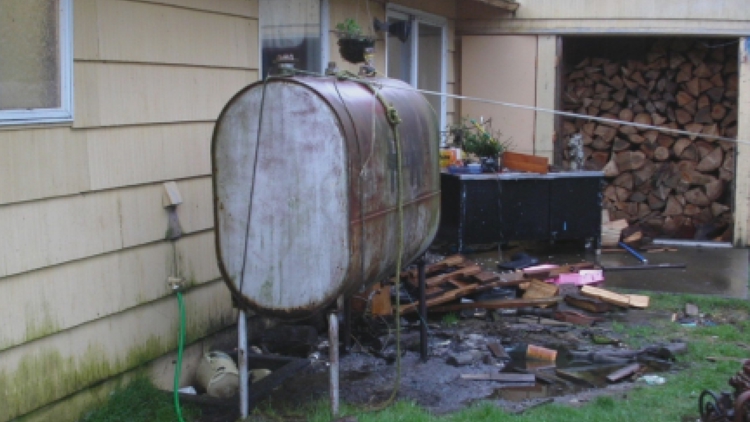NEW YORK — As the temperature outside begins to drop, heating systems are being turned on. The New York State Department of Environmental Conservation (DEC) wants to remind property owners to ensure their tanks are safe and secure ahead of winter.
The DEC stressed the importance of checking for leaks or spills before receiving fuel oil shipments.
Their list below includes things to look out for to protect your property, health, and the environment.
For above-ground heating fuel oils storage tanks, look for:
- Bent, rusty, or wobbly tank legs or tank located on an unstable foundation;
- Signs of rust, weeps, wet spots, or many dents on the tank's surface;
- Drips or any signs of leaks around the oil filter or valves;
- Fuel oil lines not covered in a protective casing - even if under concrete;
- Overhanging eaves where snow and ice could fall onto the tank;
- Stains on the ground or strong oil odor around the tank;
- Browning, dying, or loss of vegetation around the tank;
- Silent overfill whistle while tank is being filled - ask fuel delivery person;
- Fully or partially blocked tank vent from snow, ice, or insect nests;
- Signs of spills around fill pipe or vent pipe;
- Improperly sized vent pipes - ask fuel delivery person; and
- Cracked, stuck, or frozen fuel level gauges or signs of fuel around them.
For underground heating fuel oils storage tanks, look for:
- Water in the tank - ask fuel delivery person to check;
- Oil or oil sheen in your basement sump or French drain;
- Silent overfill whistle while tank is being filled - ask fuel delivery person;
- Fully or partially blocked tank vent from snow, ice, or insect nests;
- Signs of spills around fill pipe or vent pipe;
- Well water has strange tastes or smells;
- Complaints from neighbors of fuel oil smells; and
- Using more than normal amount of fuel.
The DEC Spills Hotline at 1-800-457-7362 should be contacted if fuel oil spills or leaks occur.
A build-up of natural gas in a home is also a concern; this can cause explosions. The DEC recommends installing methane detection alarms in any closed space where it can accumulate. They also say that a build-up could be better detected if mercaptan, an odorant, is added to natural gas.
“Planning ahead for the winter season will help save New Yorkers time, money, and potential headaches later on when it comes to home heating,” DEC Interim Commissioner Sean Mahar said. “Annual inspections and other simple precautions can prevent leaks and spills and ensure people, property, and the environment are protected.”
For more information, visit the DEC website.



